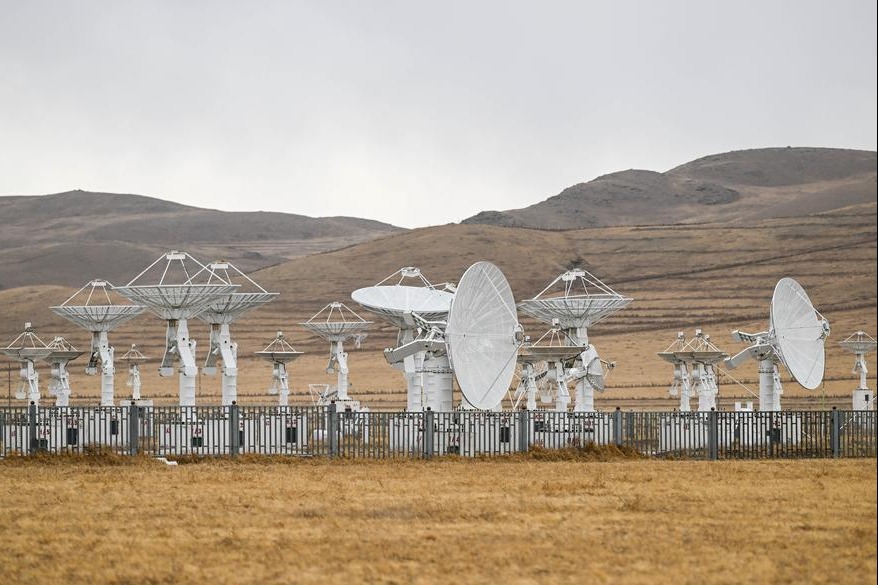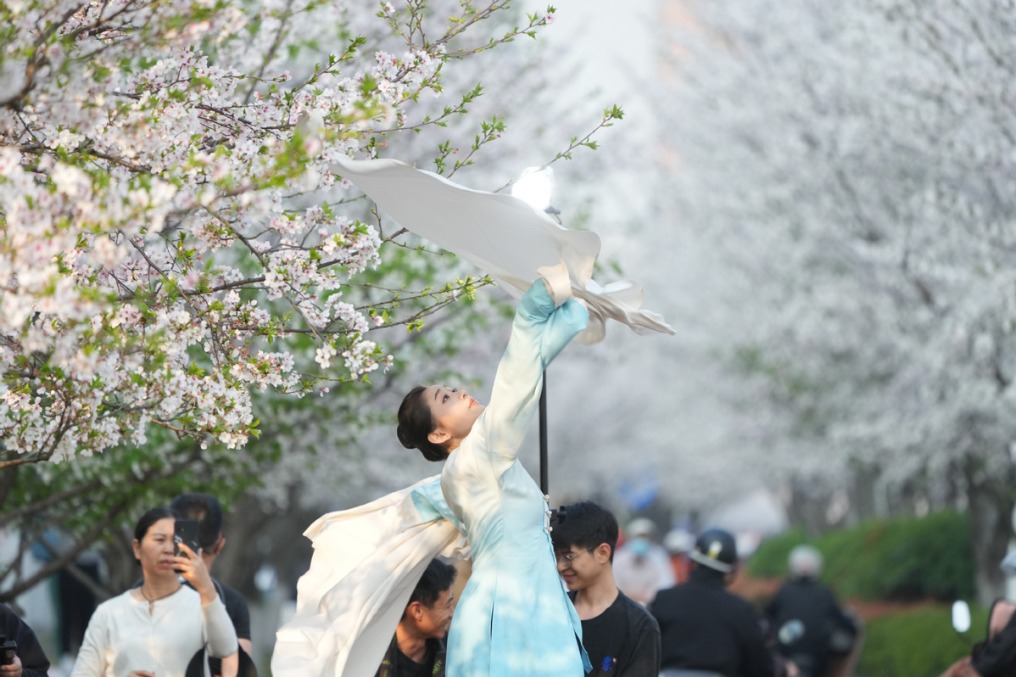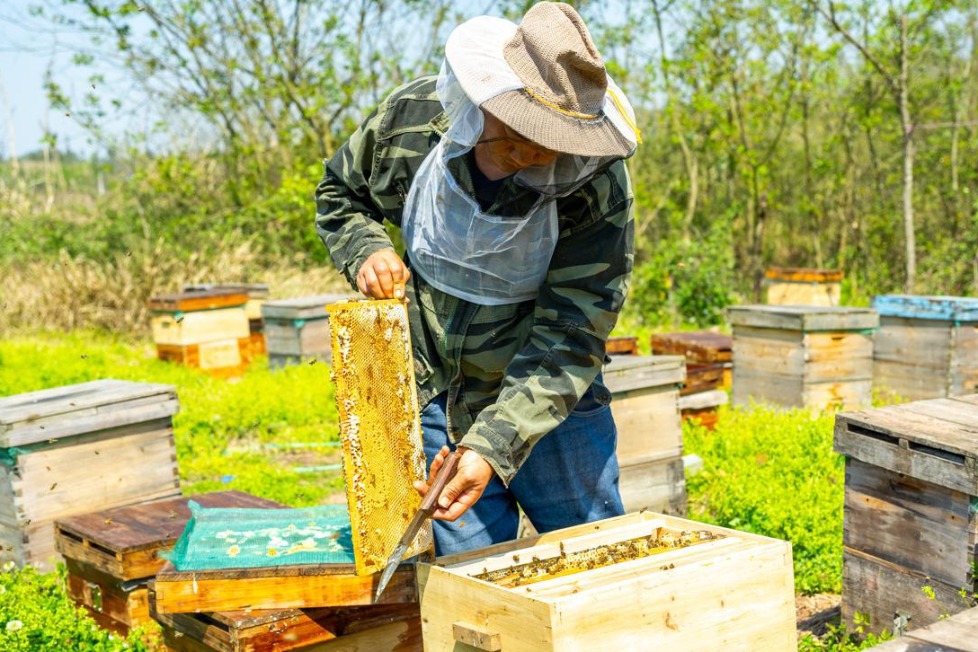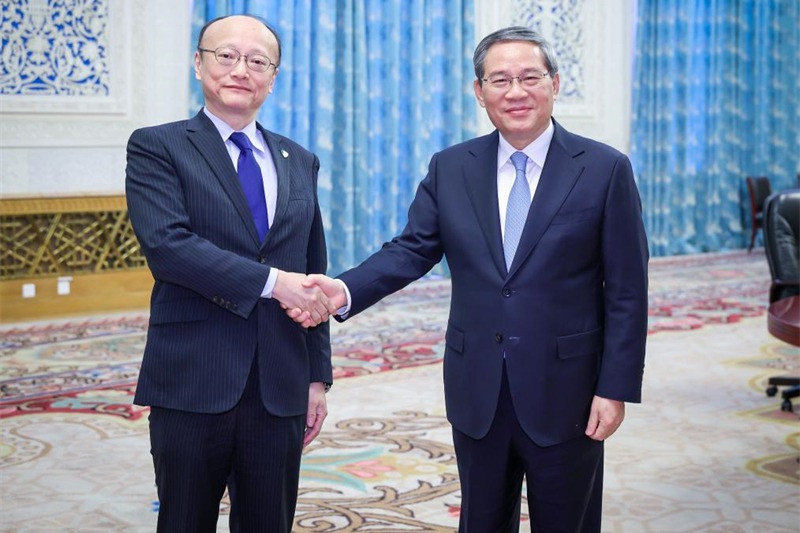Cryopreservation keeps hopes of motherhood alive

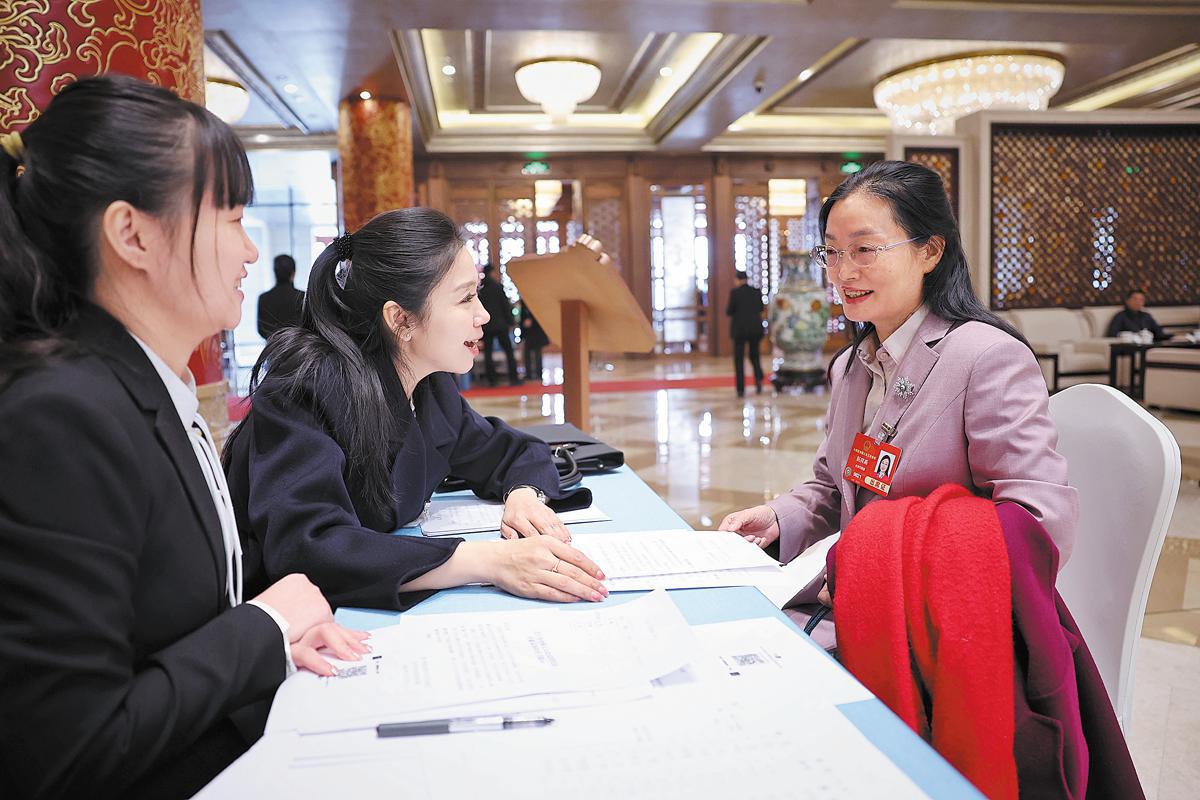
Li Ying had always dreamed of becoming a mother, but a medical diagnosis almost shattered that simple wish.
Diagnosed with myelodysplastic syndrome, a condition requiring chemotherapy, Li was told that the treatment could damage her ovaries and potentially impair her fertility.
Fortunately, she had her ovaries preserved in a hospital cryobank prior to starting the treatment, allowing for reimplantation after her recovery. In 2021, she gave birth to a healthy baby, nicknamed Youyou — China's first "cryopreserved baby".
"It was a miracle!" Li recalled. In February, she turned to her doctor, Ruan Xiangyan, for a second ovarian tissue transplant, hoping to have another child.
So far, ovarian tissue from over 750 girls and women is preserved in the cryobank at the Beijing Obstetrics and Gynecology Hospital, Capital Medical University, waiting to be "woken up" and once again serve as the source of new life.
However, these patients are among the lucky few.
"Each year, at least one million girls and women of childbearing age undergo chemotherapy or radiotherapy, yet fewer than one in 10,000 can have their ovaries preserved," said Ruan, founding director of the department of gynecological endocrinology at the hospital.
As a pioneer of ovarian tissue cryopreservation and transplantation in China, Ruan is not only dedicated to advancing the technology but also hopes to ensure that patients are fully informed about the medical risk of ovarian failure, helping them preserve their fertility.
Frozen 'Noah's Ark'
Chemotherapy and radiotherapy cause ovarian failure with an incidence ranging from 70 to 100 percent, leading to infertility, premature menopause and other health issues due to insufficient ovarian hormones, Ruan said.
How can these patients preserve both their lives and their ovarian function? "This is a global challenge, and China had long been absent in this field," Ruan said.
After nearly a century of efforts by medical experts and scientists, the breakthrough technology of ovarian tissue cryopreservation and transplantation emerged and gradually matured. In 2004, the world's first healthy baby was born using this technology.
In 2010, while studying in Germany, Ruan was introduced to the technology. "I was overwhelmed with excitement. China needs this so much! My patients will be saved!" she recounted. Without hesitation, Ruan made up her mind to bring it back to China.
With support from the government and foreign experts, China's first ovarian tissue cryobank was officially established at the hospital in 2012, a frozen Noah's Ark carrying the hopes of future life.
In order to make ovarian freezing services accessible to more people, Ruan has helped train doctors from over 300 hospitals across the country for the past six years. And with collective efforts, a nationwide fertility preservation network has been established, allowing ovarian tissue from across the country to be transported to the cryobank within 24 hours.
Certain preservation procedures have now been included in medical insurance coverage in the Beijing-Tianjin-Hebei region.
So far, the hospital has successfully completed 41 tissue transplants, ranking at the forefront internationally in terms of success rate.
"All in all, it is most important to make these ovaries function again," Ruan said.
Following the birth of Youyou, China's second "cryopreserved baby" was born in October.
"At that moment, I felt all my efforts have been worthwhile," she said. "Bringing happiness to my patients is my greatest happiness."
Medical disclosure needed
"Do you know how hard this has been for me? I wish I could give her my own ovary ..." a mother sobbed uncontrollably.
Her daughter, now 19, was diagnosed with acute myeloid leukemia seven years ago. She endured grueling chemotherapy and radiation, which saved her life but came at a devastating cost. Her ovarian function was completely lost, and she experienced premature menopause. Her growth stalled at just over 140 centimeters, and her body was as frail as a 70- or 80-year-old woman.
Sadly, cases like this are still all too common in Ruan's consulting room.
"The biggest reason is information asymmetry," she said. "As a new technology, ovarian tissue cryopreservation and transplantation is still unfamiliar to many doctors."
In addition, many doctors are unaware of the damage that chemotherapy and radiation can cause to patients, she said. "When faced with a serious illness, they always prioritize saving lives, often causing patients to miss the window for preserving fertility and ovarian function.
"Once patients are informed, many of them and their families will make every effort to preserve fertility and ovarian function," she said. "However, over 90 percent of the patients who come to my clinic have already lost the opportunity, which deeply saddens me."
Heartbroken by these tragedies, Ruan is determined to push forward, striving to help save more families already burdened by misfortune.
Over the years, she has been calling for national and local health administrations to mandate that medical institutions fully inform patients and their guardians about the potential severe impact of these treatments on ovarian function and fertility.
Medical institutions should also encourage patients and their guardians to seek consultation on fertility and ovarian preservation methods before treatment and to sign informed consent forms, she said.
Ruan's team once conducted a survey involving 2,000 doctors and patients nationwide. The results showed that 90 percent of respondents believed that if standardized medical disclosure regulations were in place and doctors failed to fulfill their duty to inform, leading to severe consequences such as ovarian failure, they should be held accountable both medically and legally.
This is in the same vein as a medical dispute in Jiangxi province in 2023, where the hospital failed to fulfill its duty of disclosure, resulting in the patient's complete loss of ovarian function. The court ultimately ruled that the hospital must compensate the patient over 110,000 yuan ($15,300). The legal victory strengthened her confidence. "There must be standardized medical disclosure," Ruan said.
Challenges ahead
Ruan's call resonates with China's broader efforts to boost its flagging population, and fertility preservation technologies are attracting increasing attention.
Beijing Obstetrics and Gynecology Hospital is currently the only medical institution in China to have verified the effectiveness and safety of ovarian tissue cryopreservation and transplantation technology, and officially applied it to clinical practices. Meanwhile, an increasing number of medical institutions across the country are conducting experiments with this technology.
Ruan cautioned about the risks associated with ovarian tissue cryopreservation, saying medical institutions lacking experience may introduce risks in various stages, including ovarian tissue retrieval, transportation and freezing.
"Therefore, international guidelines recommend that ovarian tissue cryopreservation should be centralized, as this helps reduce risks, ensures quality control and maximizes the preservation of ovarian tissue viability," she explained.
In terms of controlling the risks regarding ovarian tissue transplantation, Ruan pointed out that if clinical tests show clear evidence of malignant disease metastasis to the ovaries or ovarian malignancy, it is not recommended to transplant this ovarian tissue in the future.
So far, there have been no reports of disease recurrence attributed to ovarian tissue transplantation, Ruan said, adding that among the children born from this technology, there have been no noticeable differences compared to other children, but long-term follow-up is still necessary.
Youyou has already celebrated her third birthday and is as healthy as any other child. Every time Youyou affectionately calls her "Nanny Ruan", a warmth rises in Ruan's chest, her eyes misting over. "No matter what difficulties we face, we can't quit halfway," Ruan said.
Xinhua
- Cryopreservation keeps hopes of motherhood alive
- Visit Ming'antu observing station in N China's Inner Mongolia
- Improved connectivity drives growth in Xizang
- Students take flight at drone training center
- Xizang official: Ending feudal serfdom in Xizang 'a monumental leap' in human civilization
- Tiangong researchers to experiment on flatworms
















